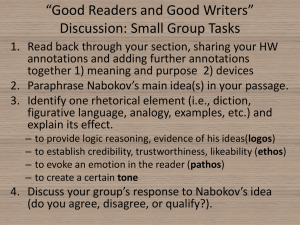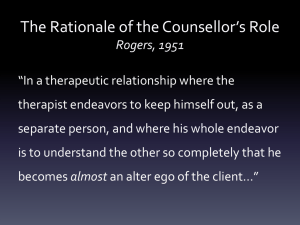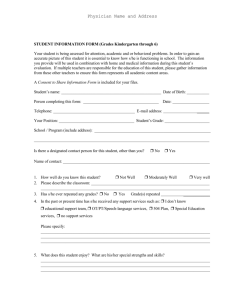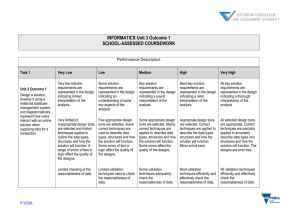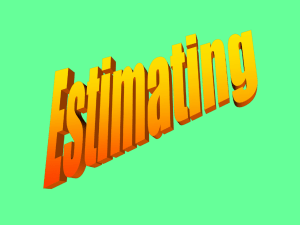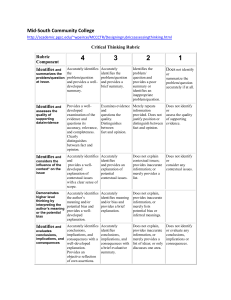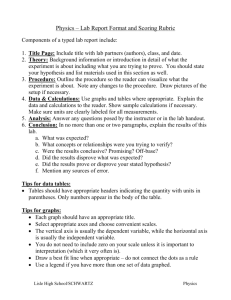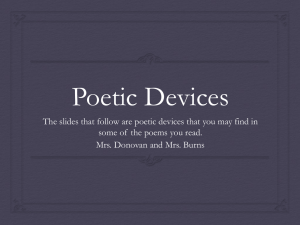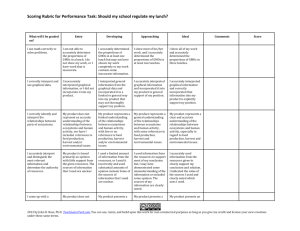Annotation Rubric
advertisement
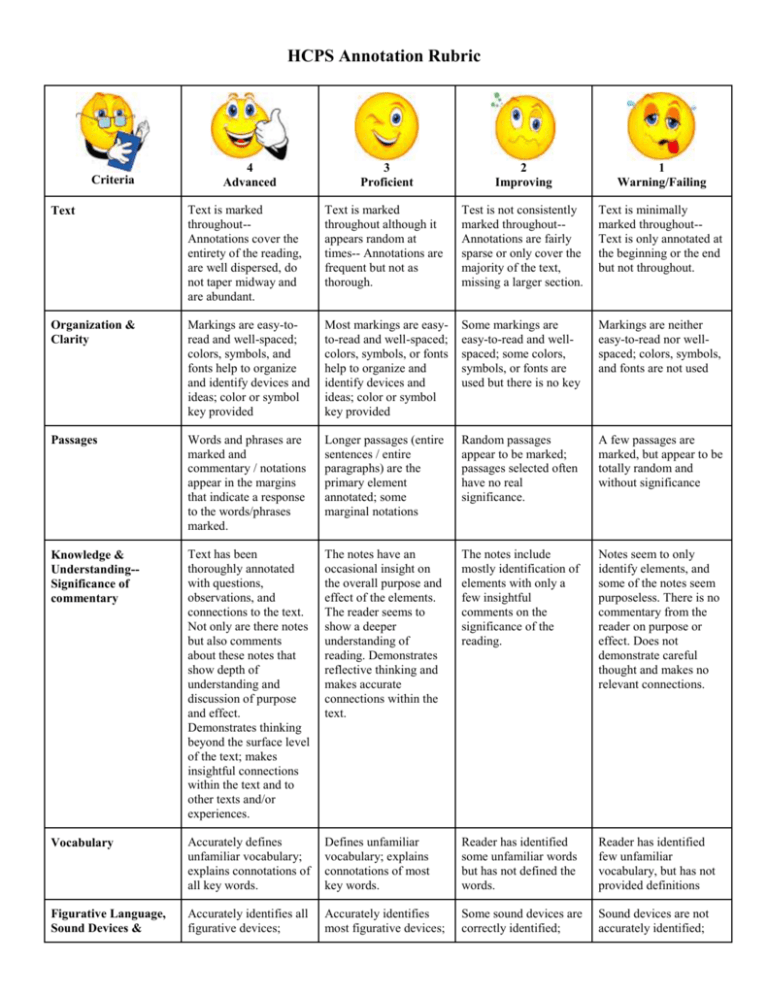
HCPS Annotation Rubric Criteria 4 Advanced 3 Proficient 2 Improving 1 Warning/Failing Text Text is marked throughout-Annotations cover the entirety of the reading, are well dispersed, do not taper midway and are abundant. Text is marked throughout although it appears random at times-- Annotations are frequent but not as thorough. Test is not consistently marked throughout-Annotations are fairly sparse or only cover the majority of the text, missing a larger section. Text is minimally marked throughout-Text is only annotated at the beginning or the end but not throughout. Organization & Clarity Markings are easy-toread and well-spaced; colors, symbols, and fonts help to organize and identify devices and ideas; color or symbol key provided Most markings are easyto-read and well-spaced; colors, symbols, or fonts help to organize and identify devices and ideas; color or symbol key provided Some markings are easy-to-read and wellspaced; some colors, symbols, or fonts are used but there is no key Markings are neither easy-to-read nor wellspaced; colors, symbols, and fonts are not used Passages Words and phrases are marked and commentary / notations appear in the margins that indicate a response to the words/phrases marked. Longer passages (entire sentences / entire paragraphs) are the primary element annotated; some marginal notations Random passages appear to be marked; passages selected often have no real significance. A few passages are marked, but appear to be totally random and without significance Knowledge & Understanding-Significance of commentary Text has been thoroughly annotated with questions, observations, and connections to the text. Not only are there notes but also comments about these notes that show depth of understanding and discussion of purpose and effect. Demonstrates thinking beyond the surface level of the text; makes insightful connections within the text and to other texts and/or experiences. The notes have an occasional insight on the overall purpose and effect of the elements. The reader seems to show a deeper understanding of reading. Demonstrates reflective thinking and makes accurate connections within the text. The notes include mostly identification of elements with only a few insightful comments on the significance of the reading. Notes seem to only identify elements, and some of the notes seem purposeless. There is no commentary from the reader on purpose or effect. Does not demonstrate careful thought and makes no relevant connections. Vocabulary Accurately defines unfamiliar vocabulary; explains connotations of all key words. Defines unfamiliar vocabulary; explains connotations of most key words. Reader has identified some unfamiliar words but has not defined the words. Reader has identified few unfamiliar vocabulary, but has not provided definitions Figurative Language, Sound Devices & Accurately identifies all figurative devices; Accurately identifies most figurative devices; Some sound devices are correctly identified; Sound devices are not accurately identified; Rhyme Scheme explains in detail the effect and meaning of these devices Accurately identifies alliteration and assonance; rhyme scheme is accurately identified using letters explains the effect and meaning of these devices Accurately identifies most sound devices; rhyme scheme is accurately identified rhyme scheme is not accurately identified Some inaccuracies; incomplete explanations rhyme scheme is not identified Many inaccuracies; weak or missing explanations Literary Elements & Style Effectively discusses literary elements and how these contribute to meaning. Evaluates the author’s style, draws inferences from figurative language Adequately discusses literary elements without fully creating effective connections to meaning. Identifies several aspects of author’s style, analysis supported. Lists literary elements but limited discussion of meaning. Identifies limited aspects of author’s style. Little or no success in finding literary elements, little to no discussion of meaning. Disregards author’s style as means to further meaning. Interpretation/ Theme/ Big Picture Annotations accurately identify purpose/themes of the work. Annotations identify the main ideas and provide readers’ insights on the big picture. Connects beyond the text in terms of a larger or universal significance, as aspect of self or life in general. Effective interpretation and avoids clichés. Annotations may not accurately identify themes/purpose of text. Annotations seem to understand the big picture but perhaps not clearly or with varied focus. An attempt to identify theme/purpose of the text is visible, but not accurate. Annotations seem shallow, only seeing the details without the whole. Too narrow a focus. Literal, unsupported, drawn-out plot summary. Simple, superficial interpretation of the text. No attempt to identify theme/purpose of the text. Annotations miss big picture overall, details identified but not analyzed as a whole. Little or no success in making meaning of the text. Doesn’t reach obvious connections to the text. Total: _____/32 (24 is passing)
